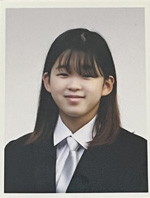![[a doctor heading to his workplace. Photo credit to pxhere]](https://cdn.heraldinsight.co.kr/news/photo/202403/3947_7799_4912.jpg)
A significant opposition among the trainee doctors has emerged due to the expansion of the medical school quota, leading to widespread protests.
Major hospitals are rescheduling surgeries and admission schedules, causing heightened anxiety among patients.
As of February 16, 715 trainees from 23 hospitals have submitted resignation letters, representing 30 to 40% of the medical workforce in tertiary referral hospitals.
These doctors play a crucial role in assisting professors in surgeries and major treatments.
As trainee doctors' resignation trend increases, patients may face significant harm due to a lack of personalized care.
According to the OECD, South Korea faces a severe shortage of doctors, with only 2.6 clinical doctors per 1000 people in 2021, ranking it second among OECD nations after Mexico, while the average is 3.7 doctors per 1000 inhabitants.
Despite attempts by the government to expand admissions, which remained around 3,058 people since 2006, these efforts have been met with collective resistance from doctors.
Despite the critical shortage in South Korea, opposition to increased medical school admission persists, with reasons beyond concerns for patient welfare not clearly emphasized.
Trainee doctors continued their protest against the quota hike, with nearly 10,000 participating in a walkout, causing serious staffing shortages in major medical facilities.
In response, the Health Ministry announced that it had filed a complaint with the police to investigate doctors leading collective action for potential violations of medical and criminal law.
Criticism among doctors suggesting the need for more caregivers instead of doctors has triggered backlash for overlooking the importance of professional medical support in elderly care.
In addition, another doctor suggested only top-performing students should be eligible to become professionals, highlighting concerns of elitism among Korean physicians.
Furthermore, some statements from medical professionals about the shortage of doctors in rural areas have stirred up controversy, as they stated that the countryside region reflects a lower standard of living rather than a lack of a medical workforce.
These support critics' arguments that the occupation of the medical profession has revealed a sense of privilege and arrogance among doctors where the doctors disregard patient suffering and attempt to exert authority over the public.
Meanwhile, the shortage of doctors and mass medical professionals has negatively affected the nurse workforce, forcing them to handle significant responsibilities previously managed by qualified doctors, such as adjusting outpatient and surgery schedules, preparing dressings, and regularly checking blood pressure and heart rate.
The Korean Nurse Association says “The burden on nurses’ increased workload would ultimately jeopardize patient safety.”
Many hospitals operate with minimal nursing staff to save on labor costs, with some hospitals even forcing nurses to take days off, citing a decrease in patient numbers due to the mass exodus of specialists.
President Yoon Suk Yeol has firmly stated his measures on increasing the annual medical school enrollment quota by 2,000, describing this number as “non-negotiable.”
Criticizing the doctors’ collective action opposing this move, Yoon stated that it jeopardizes people’s health and lives.
Yoon attributed the cause of the doctor shortage to disparities in healthcare services between urban areas and remote villages, emphasizing the need for infrastructure improvements to prevent further collapses in the country’s medical infrastructure.
In response to the backlash, The Korea Medical Association (KMA) plans to strengthen its public relations efforts to address what it views as misunderstandings regarding the opposition to expanding medical school quotas.
The KMA aims to inform the public about the perceived problems with increasing the annual medical quota and the rationale behind their opposition.

Yuna Kim
Grade 9
Taejon Christian International School

